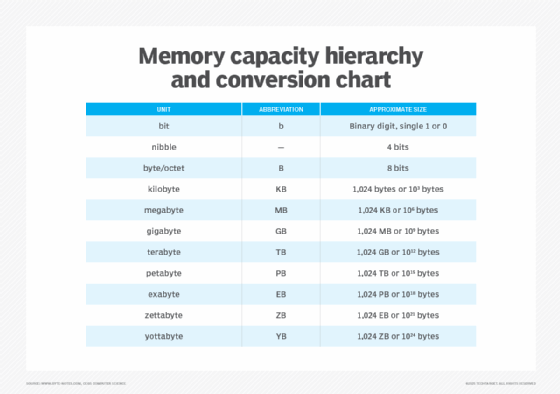Do you know what a gigabit is? How about a gigabyte? Many people confuse these two terms. They sound the same. They also look the same. But they are different. Let’s learn more about gigabits and gigabytes.
What is a Gigabit?
A gigabit is a measure of data. It is often used to describe internet speed. One gigabit is equal to 1,000 megabits. In short, a gigabit is a large chunk of data. Internet providers often talk about gigabit speeds. This means they can send or receive data quickly.
Why Gigabits Matter
Gigabit speeds are important. They make the internet faster. With gigabit speeds, you can download movies quickly. You can also play online games smoothly. If your internet speed is slow, it can be frustrating. Slow speeds mean long wait times. No one likes to wait.

Credit: www.techtarget.com
What is a Gigabyte?
A gigabyte is also a measure of data. But it is different from a gigabit. One gigabyte is equal to 1,024 megabytes. We use gigabytes to measure storage. For example, your phone might have 64 gigabytes of storage. This tells you how much data your phone can hold.
Why Gigabytes Matter
Gigabytes are important for storage. They tell you how much data you can keep. If you have more gigabytes, you can store more. This means more apps, photos, and videos. If you run out of gigabytes, you can’t store more data. You might need to delete some files.

Credit: www.facebook.com
The Key Differences
Now, let’s compare gigabits and gigabytes. They both measure data. But they are used in different ways. Gigabits measure speed. Gigabytes measure storage. Here is a simple table to show the differences:
| Gigabit | Gigabyte |
|---|---|
| Measures speed | Measures storage |
| 1,000 megabits | 1,024 megabytes |
| Used in internet services | Used in devices like phones and computers |
How to Remember the Difference
It is easy to get confused. Here are some tips to remember the difference:
- Gigabit: Think of “bit” as speed. Fast bits make the internet fast.
- Gigabyte: Think of “byte” as storage. Big bytes hold more data.
Use these tips to help you. They can make it easier to understand.
Real-World Examples
Let’s look at some real-world examples. This can help you understand better.
Example 1: Internet Speed
Your internet provider offers gigabit speeds. This means you can download a movie fast. A two-hour movie might take just a few seconds. This is because gigabit speeds are very fast.
Example 2: Phone Storage
Your phone has 64 gigabytes of storage. This means you can store many apps, photos, and videos. If you take many pictures, you might need more storage. You can buy a phone with more gigabytes. This will give you more space for your data.
Frequently Asked Questions
What Is A Gigabit?
A gigabit is a unit of data measurement. It equals one billion bits.
What Is A Gigabyte?
A gigabyte is a unit of data storage. It equals one billion bytes.
How Many Bits Are In A Gigabit?
A gigabit has one billion bits.
How Many Bytes Are In A Gigabyte?
A gigabyte has one billion bytes.
Conclusion
Now you know the difference between gigabits and gigabytes. Gigabits measure speed. Gigabytes measure storage. Both are important. They help us understand how data works. Next time you hear these terms, you will know what they mean. You can explain them to others too.
Remember, gigabits and gigabytes are not the same. They are different but both are useful. Understanding them can help you make better choices. Whether you are choosing an internet plan or buying a new phone, this knowledge is helpful.
Thank you for reading. We hope this guide has helped you. Keep learning and stay curious!